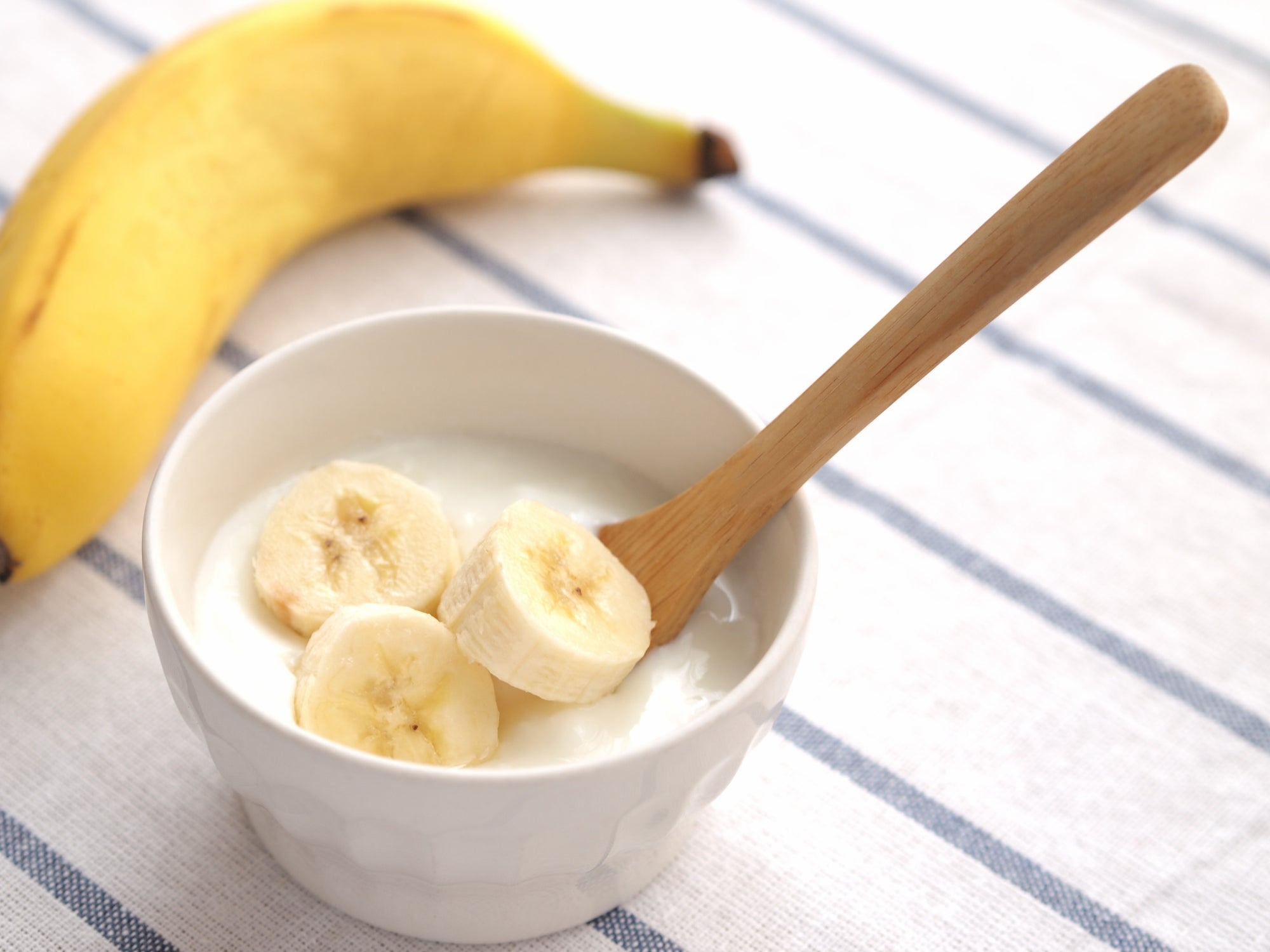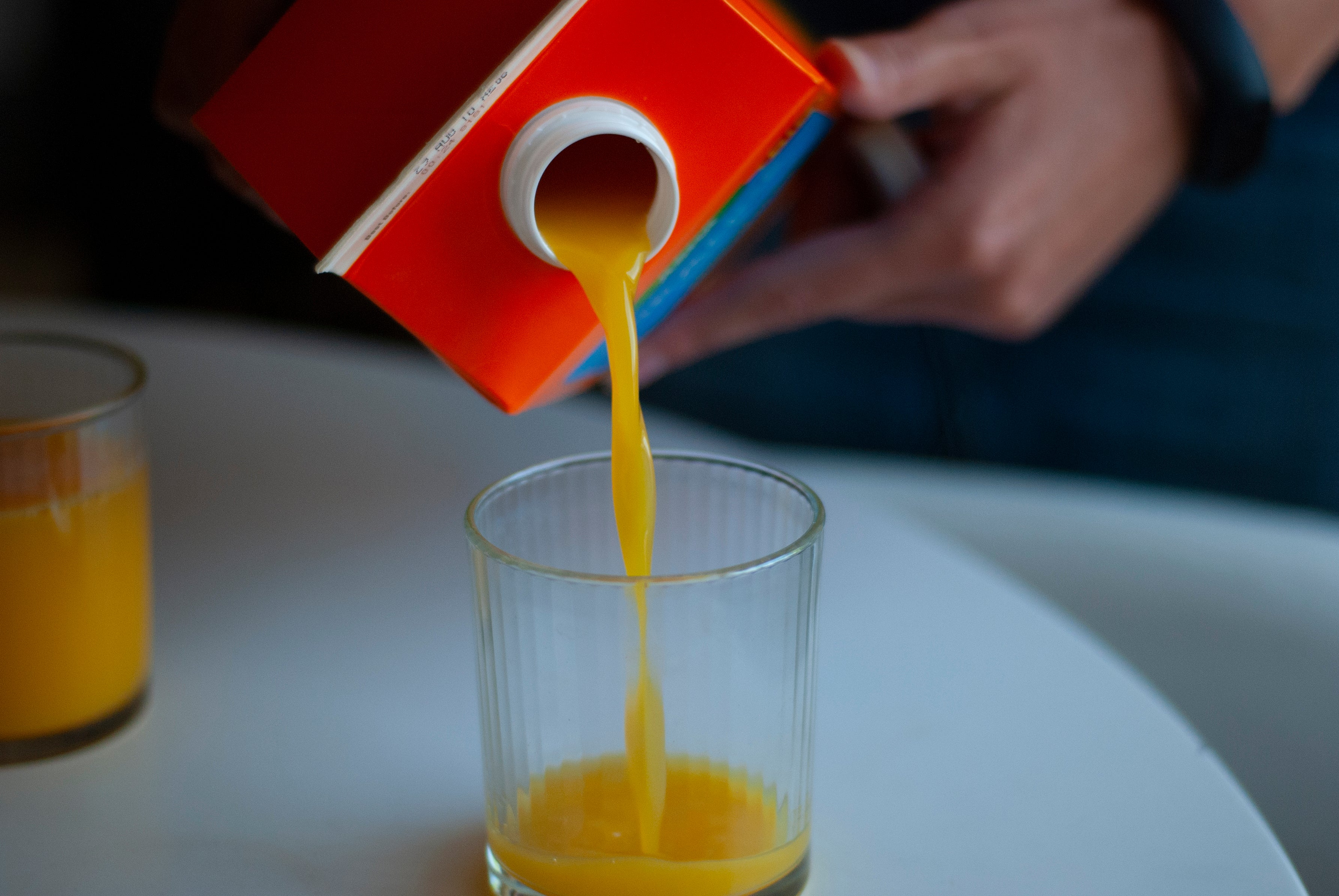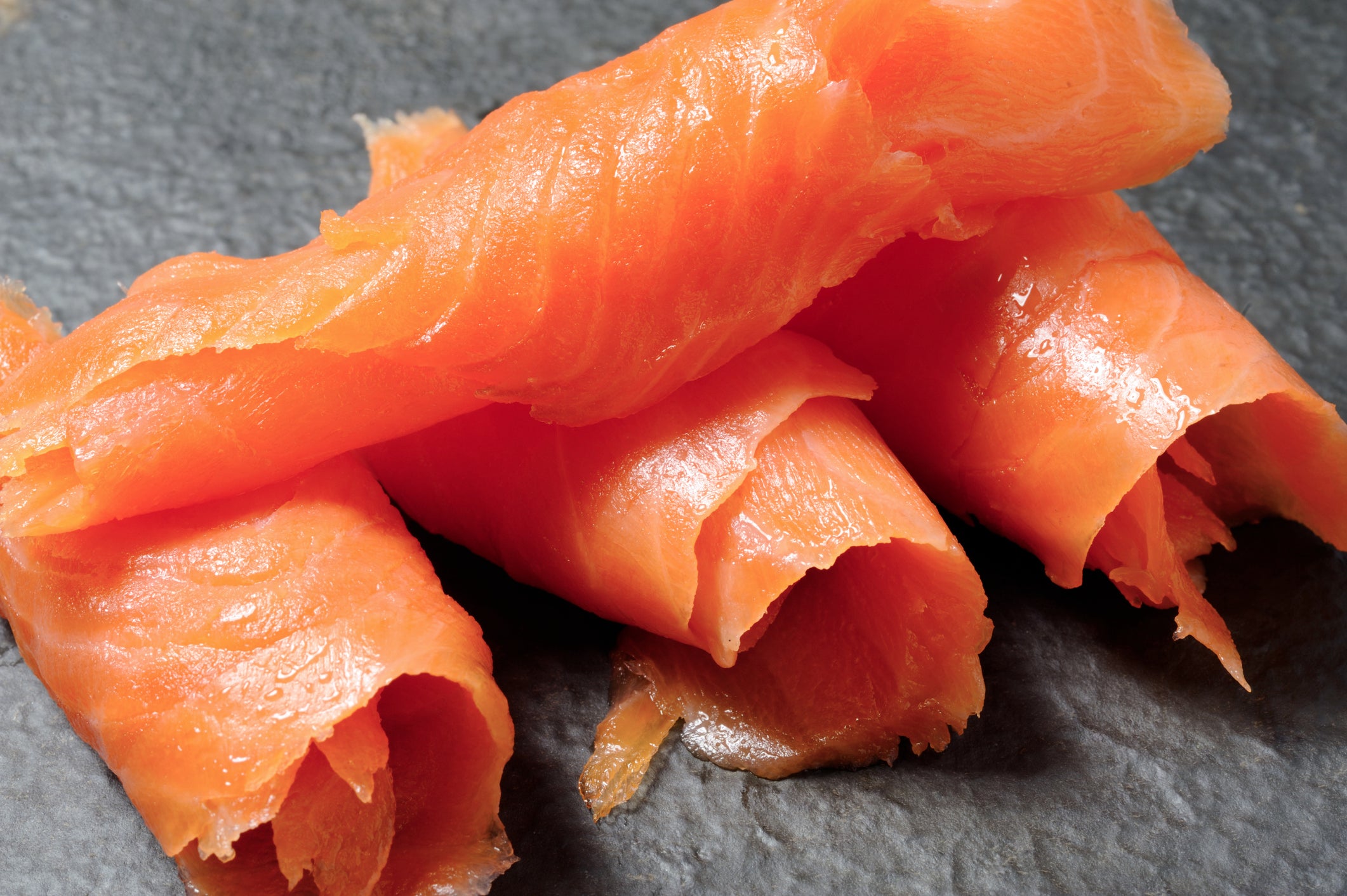Alan Titchmarsh is right about avocados – but Greek yoghurt and bananas aren’t the good breakfasts you think either
The celebrity gardener has warned us off avocados, but from Greek yoghurt to almond milk and bananas and coffee, many of our so-called healthy breakfast staples have their downsides too. Hannah Twiggs investigates the true cost of your morning routine – and what to eat instead


Avocados should be treated like foie gras, Alan Titchmarsh said this week, adding that he has not eaten the fruit in five years.
Speaking on Times Radio, the former Gardeners’ World presenter lamented Britain’s obsession with avocados, pointing out that consumption has tripled in the last 20 years, despite incessant warnings of mass deforestation and global gas emissions. It seems most people have shrugged them off in favour of a perfectly Instagrammable brunch.
A single avocado requires around 320l of water to grow. For comparison, a lettuce needs about 50l. The vast majority of avocados come from Mexico, Chile and Peru, clocking up thousands of miles in carbon-heavy refrigerated transport before they land on our breakfast and brunch plates. In Mexico, the industry has become so lucrative that cartels are now muscling in, turning avocados into what’s been dubbed “green gold”.
Of course, Titchmarsh’s solution is simple: “Don’t eat them.” A bold stance, but in a country where entire restaurants revolve around brunch, perhaps not a realistic one.
Avocados aren’t the only breakfast staple with a dark environmental rap sheet. Many of our other beloved morning choices – yoghurt, smoked salmon and eggs, even coffee – have largely escaped scrutiny.
If breakfast is the most important meal of the day, perhaps it’s time we started paying attention to what’s really on our plates.
Bananas: the world’s favourite fruit, a deforestation disaster
Bananas seem harmless enough. A natural energy source, free from processing, wrapped in their own biodegradable packaging.
But banana plantations are one of the biggest causes of deforestation in Ecuador, Costa Rica and Colombia, according to Global Citizen, and growing them has wiped out vast areas of rainforest and devastated biodiversity. The industry is also one of the most chemically intensive, with pesticides and fungicides used in such high concentrations that they pollute soil, rivers and local water supplies.
The average banana travels around 5,000 miles before it reaches your smoothie. While its carbon footprint is still lower than that of, say, steak, the sheer scale – billions shipped every year – means the impact is anything but minor.

A better alternative? Locally grown apples, pears or berries offer similar nutritional benefits with far fewer food miles.
Greek yoghurt: the dairy industry’s dirty secret
High in protein and packed with probiotics, Greek yoghurt has become the breakfast of choice for anyone looking to feel both full and virtuous. But there’s a problem.
For every 1kg of Greek yoghurt produced, around 1.3kg of acid whey is generated, which is difficult to dispose of sustainably. When dumped into waterways, it depletes oxygen levels, suffocating aquatic life. Most Greek yoghurt in the UK is imported from Greece and Germany, further adding to its carbon footprint.
It won’t surprise anyone to hear that the entire dairy industry is riddled with sustainability problems, particularly when it comes to butter and cheese, two breakfast staples that rarely get the same level of scrutiny as meat. Butter, in particular, is an environmental heavyweight. According to a report by The Carbon Trust, producing 1kg of butter emits up to 24kg of CO2, making it even worse than beef in terms of carbon intensity. Cheese isn’t much better at 13.5kg of CO2 per kg, putting it alongside lamb and pork in terms of environmental impact.
24kg of CO2
Per 1kg of butter
The problem largely comes down to methane emissions from dairy cows and the sheer amount of land, water and feed required to keep the industry going. One litre of milk takes around 1,000l of water to produce, and much of the UK’s dairy feed is soy-based, meaning it is linked to deforestation in South America.
In the UK, butter is still considered a wholesome farmhouse staple, and cheese – a wedge of Stilton here, a sliver of Cheddar there – is part of the national identity. A shift towards regenerative dairy farming, which focuses on soil health, biodiversity and reducing emissions, could help make a difference. In the meantime, grass-fed and locally sourced dairy is the best option for those unwilling to part with their morning spread of salted butter.
Almond milk: the thirstiest dairy alternative
For years, almond milk was hailed as the ultimate sustainable swap for dairy. No cows, no methane, just wholesome plant-based goodness. But it turns out that replacing dairy with almonds is the equivalent of swapping a gas-guzzling SUV for a private jet.
The water consumption alone is outrageous. EatingWell reports that producing a single litre of almond milk requires around 6,000l of water – the equivalent of two months’ worth of showers. Most almonds are grown in drought-stricken California, where water resources are already stretched to breaking point. And then there’s the impact on bees. Commercial almond farming relies on mass pollination. The result is catastrophic: an estimated 50 billion bees died during the 2018-19 almond growing season, largely due to pesticide exposure and exhaustion.
If you must avoid dairy, oat milk is a far better solution, requiring far less water and offering a lower environmental impact.
Coffee and tea: the morning fixers that fix nothing
Coffee is, frankly, an environmental nightmare. The world’s caffeine addiction has led to rampant deforestation in South America and Africa, stripping rainforests to make way for coffee plantations. The water consumption alone is staggering – it takes 140l of water to produce a single cup of coffee – and much of the industry still relies on exploitative labour practices, with low wages and poor working conditions rife in many coffee-growing regions.

Tea isn’t guilt-free either. A quintessentially British beverage, it might seem like a more sustainable choice than coffee, but the extent of its environmental impact depends heavily on how it’s grown and processed. Large-scale tea plantations in India, Sri Lanka and Kenya have been linked to deforestation, soil degradation and biodiversity loss. Many of the world’s major tea producers still rely on chemical-intensive farming, which can strip soil of nutrients and pollute nearby water sources.
Adding to that, a staggering 96 per cent of tea bags in the UK contain plastic, meaning they don’t fully break down in compost and contribute to microplastic pollution. Brands have started moving towards biodegradable options, but old habits – and supply chains – die hard.
If you’re looking for a genuinely low-impact caffeine fix, loose-leaf tea is a better choice than bagged, as it eliminates packaging waste. For the ultimate sustainability switch, UK-grown herbal teas – like chamomile, peppermint or nettle – offer a far more eco-friendly alternative, without the food miles or the dubious ethics of large-scale plantations.
Orange juice: the sugary, carbon-heavy classic
Orange juice has long been marketed as a healthy start to the day – after all, it’s packed with vitamin C, right? But nutritionally it’s little more than liquid sugar, and environmentally it’s far worse than most people realise.
Most of the orange juice consumed in the UK comes from Brazil and Florida, meaning it has to be shipped (or worse, flown) thousands of miles before it reaches supermarket shelves. The carbon footprint of orange juice production is substantial, not just because of transportation but because of the farming methods used to grow oranges at scale. The Sustainable Food Trust reports that orange plantations are responsible for significant deforestation and pesticide pollution, with large amounts of water diverted from local ecosystems to sustain production.

Then, there’s the problem of processing. Most supermarket orange juice isn’t freshly squeezed – it’s been heat-treated, stripped of its natural oils and stored in giant vats for months before being reconstituted with artificial “flavour packs”. This means that even if you’re buying “100 per cent pure” juice, it’s still highly processed and energy-intensive to produce.
If you really want a citrus fix, eating a whole orange is a far better option – it retains the fibre, reduces waste and doesn’t require the same level of industrial processing. Alternatively, UK-grown apple juice offers a far more sustainable alternative, with far fewer food miles attached.
Smoked salmon and eggs: the brunch duo that’s not so innocent
If avocado toast is the star of the modern breakfast table, then smoked salmon and eggs are its seasoned understudies – but both of these staples come with an environmental price tag that’s harder to digest.
Scottish salmon, the go-to choice for UK consumers, might be local, but it isn’t exactly sustainable. Industrial salmon farming has been widely criticised for its devastating impact on marine ecosystems. According to The Guardian, fish farms in Scotland have been linked to high mortality rates in salmon, disease outbreaks and pollution, with untreated waste contaminating nearby waters and damaging marine biodiversity. Even more concerning is farmed salmon’s reliance on wild fish stocks for feed – meaning that for every 1kg of farmed salmon produced, up to 3kg of wild fish is required. It’s an astonishingly inefficient process, particularly for a food so often marketed as a “sustainable” protein.

Eggs, meanwhile, might seem relatively harmless in comparison – after all, they don’t require vast tracts of land or enormous amounts of water. But even the most ethically produced free-range eggs come with a hidden cost. The main culprit? Chicken feed. Most UK egg production relies heavily on soy-based feed, much of which is imported from South America, where vast areas of rainforest have been cleared for soy farming. According to The Soil Association, 90 per cent of the soy used in European animal feed comes from deforested land, making even the most ethical eggs indirectly responsible for habitat destruction.
Then there’s the methane problem. Chickens might not be quite as gaseous as cows, but poultry farming still contributes significantly to greenhouse gases, particularly nitrous oxide and methane, which have far greater warming potential than CO2. Given the UK’s egg consumption – over 13 billion eggs per year, according to the British Egg Industry Council – the environmental impact quickly adds up.
So, should we all be swapping our eggs for tofu scramble? Not necessarily. But if you’re making an effort to cut down on environmentally damaging foods, it’s worth considering where your eggs come from. Pasture-raised eggs from regenerative farms are a better bet, while sustainably sourced fish – think line-caught or lower-impact alternatives like trout – can help to lessen the damage.
So what’s left? The reality of a sustainable breakfast
It’s easy to feel paralysed by the sheer scale of the problem. If avocado toast, Greek yoghurt and almond milk lattes are off the table, what exactly are we supposed to eat?
The answer isn’t to abandon all joy at breakfast, but rather to rethink our choices. Locally grown fruit, British oats and dairy from sustainable sources are all lower impact options. If you must have yoghurt, seek out brands that use regenerative dairy farming. If you need a caffeine hit, look for Fairtrade, shade-grown coffee that minimises deforestation.
For milk alternatives, oat milk is a better choice than almond milk, and when it comes to protein, pasture-raised eggs and line-caught fish have a lower impact than their industrially farmed counterparts.
The point is not to strip breakfast down to the bleakest, most joyless affair imaginable. It’s simply to acknowledge that eating “clean” is rarely as clean as it seems. If nothing else, the next time you slice open a perfectly ripe avocado, perhaps consider what it cost to get there.
This article was amended on 4 April 2025. It originally stated that around 3kg of acid whey was generated for each kilo of Greek Yoghurt made, but that was incorrect. A study found that each kilo of yoghurt generates around 1.3kg of acid whey.
Join our commenting forum
Join thought-provoking conversations, follow other Independent readers and see their replies
Comments


Bookmark popover
Removed from bookmarks